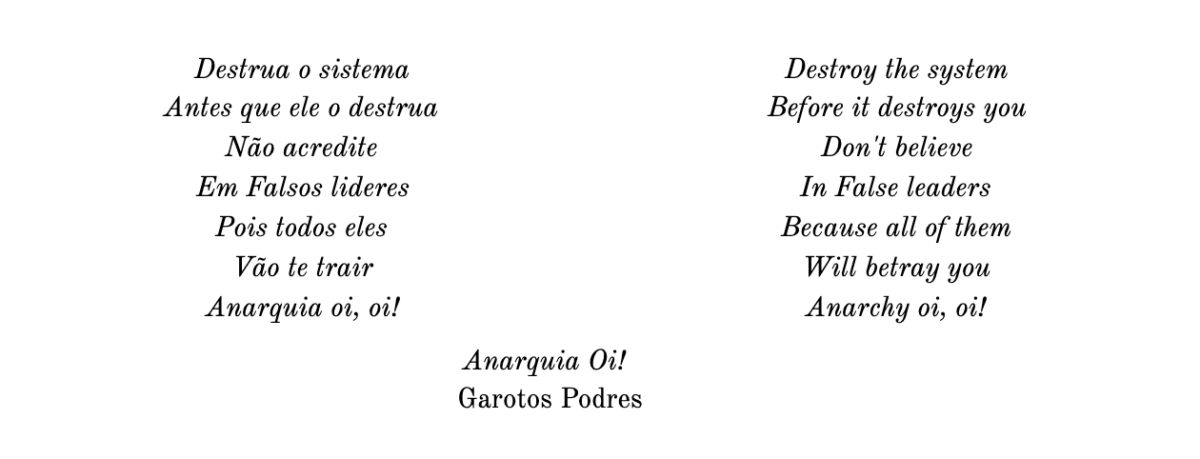
Punk epistemology can be summed up as the incredulity to all forms of perceived unjust power and the subversion of normalizing power, which despite ideological differences, is held together by the desire to be subversive, non-conformant, and DIY ethics. In four words, it consists of solidarity, horizontality, individuality, and transgression, otherwise known as S.H.I.T! It is a crucial part of punk’s revolutionary potential and is a unique medium of resistance in that it does not, in itself, require significant material actions. All it demands is an internal paradigm shift towards an incredulity towards all figures in power. Punk epistemology offers an alternative ideology to that which is enforced by state power, for the simultaneous preservation of associations and individuality—an epistemology that produces and reproduces community and solidarity, while maintaining individuality. In order to develop a theory of punk epistemology, it is useful to look at two writers who are frequently shunned by modern academia.
Max Stirner, a prominent anarchist philosopher, and developer of egoist theory is arguably the first to hold this epistemology. In his opus, The Unique and Its Property, Stirner writes “I am and will always remain, with regard to myself, more than the State, than the Church, than God, etc., and thus, infinitely more than the association also.” Stirner also famously critiques the school system, the dominant ideological state apparatus, and provides an alternative pedagogy “The starting point of pedagogy ought not to be the civilizing vocation, but the calling to shape free personalities and sovereign characters: thus, there must be an end to the sapping of a will hitherto brutally ground down. From the moment that the yearning for learning is no longer sapped, why go on sapping the urge to desire? If the former is cultivated, so too must the latter be cultivated” Although this prompts inquiries into fields other than anthropology, Stirner could be a source of theory for a punk pedagogy in a post-capitalist society.
Around a century later, on the eve of punk’s birth, Dr. Hunter S. Thompson ran for Sheriff of Aspen (which he would have renamed ‘Fat City’ to discourage investors from capitalizing the city, but also because it’s just funny). His main campaign strategy was the Aspen Technique: “neither opting out of the system, nor working within it… but by calling its bluff, by using its strength to turn it back on itself… and by always assuming that the people in power are not smart “(Thompson, The Great Shark Hunt)—just to clarify, we should opt-out of the system, but recognize the possibilities of resistance that operate within the constraints of the capitalist system.
Shane Greene, a misanthropologist of punk, identifies a defining feature of punkness as a state of “disregarding the accepted definitions of others, including at the metapunkish level the very definitions of what punk is or can be” (Greene, Punk and Revolution). To be a punk means to not be punk, and be punk by doing so.
If we maintain punk epistemology to be the incredulity towards all expectations and rationality, punk offers a revolutionary strategy in its irrational logic of refusal of all preconceived norms, rather than the affirmation of any coherent ideology. In other words, punk resistance is deterritorializing and irrational. If “all that capital asks of us is to receive it as rational or to combat it in the name of rationality,” writes Baudrillard, it follows that in order to combat capital, one must be irrational, receive it as irrational, and combat it in the name of irrationality—irrational as defined as the opposition to dominant epistemes. It is precisely in this act of being irrational, of not adhering to the epistemes of the dominant society, that punks develop critical perspectives and consciously prevent themselves from being rationalized, assimilated, and neutralized by the state.
by C from the ABF